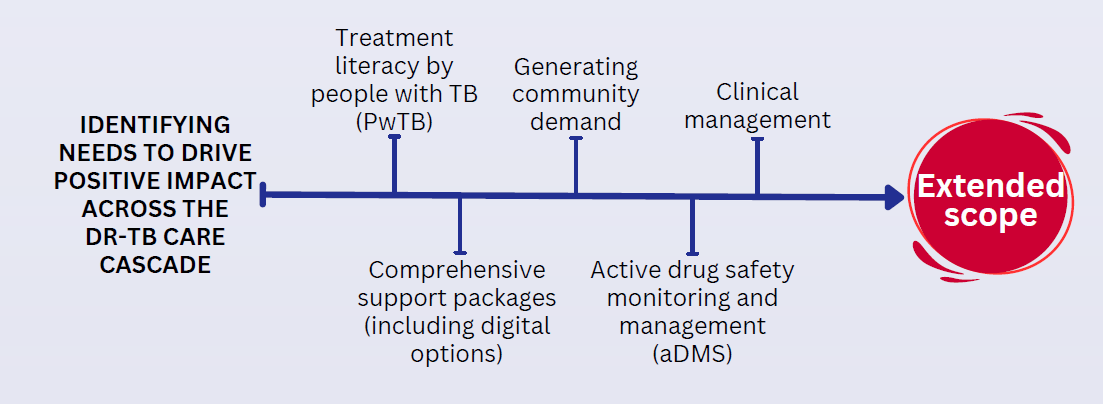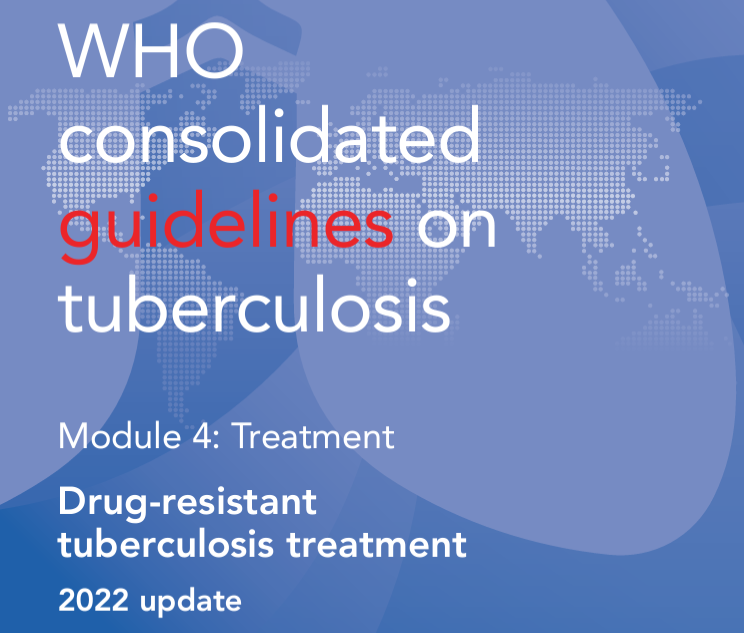An extended scope for the ASCENT project
From 2019 to 2023, ASCENT project had presence in 5 countries across 3 continents: Ethiopia, Ukraine, South Africa, the Philippines and Tanzania. During this period, the project supported over 19,000 people with their tuberculosis (TB) treatment course through the use of Digital Adherence Technologies (DATs).
By the end of 2023, data collected during this trial showed that DATs hold high acceptance and engagement rates across project regions, as well as served as a tool to tailor the care cascade for people with TB (PwTB) using the DATs. This revealed the potential of DATs as elements of a comprehensive approach to TB care more than a standalone solution to adherence.
To date ASCENT has been conducted with the focus placed mostly on Drug Sensitive TB (DS-TB). However, over the course of the project, rethinking optimal care for TB took different avenues as new challenges and opportunities arose:
- High rates of people with Rifampicin Resistant/Multidrug Resistant TB (RR/MDR-TB) both treated and untreated: According to the WHO Global TB Report 2023, 825,000 people were treated for RR/MDR-TB between 2018 and 2022, a figure that only represents 55% of the target set for that period; and
- The development of shorter regimens for RR/MDR-TB and its introduction to WHO updated guidelines in 2022: In this document, WHO included a 6-month regimen of BPaLM (Bedaquiline, Pretonamic, Linezolid and Moxifloxacin) in its recommendations to improve treatment and care for people with RR/MDR-TB. Consult here: WHO consolidated guidelines on Tuberculosis, 2022 update.
Making sure people have access to the new treatments will help optimize the care provided to people with RR/MDR-TB, and in consequence a potential improvement of their treatment outcomes. Inadequate management, leading to treatment interruptions, may result in unfavorable individual outcomes and the emergence of TB strains resistant to these regimens. Therefore, key conditions for these regimens’ success require enabling individuals to adhere to the complete treatment course and promptly identifying and managing potentially dangerous adverse events. This will help these treatments work better and stay effective for future patients.
The elements on the RR/MDR-TB care cascade required to drive the positive impact of the aforementioned shorter treatment regimen form the foundation of the extended scope of ASCENT project for the period 2023-2025. See the figure below for an overview of the needs that guided the extended scope of the project.

The extended ASCENT project is implemented in:

